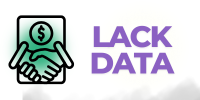The Ethics of Telegram Data Mining in Marketing begins with understanding the power and appeal of data. marketing allure Telegram, a popular messaging app lauded for its encryption and privacy features, has marketing allure become a fertile ground for marketers seeking niche audiences and behavioral insights. Its public channels, group discussions, and bot APIs offer a goldmine of user-generated data. With over 900 million active users, Telegram hosts conversations spanning topics from politics to niche hobbies, making it a potentially rich source of segmented marketing intelligence. The growing trend among digital marketers is to scrape these groups for user data, interests, and even contact information to fuel targeted campaigns. However, the use of such data without explicit consent raises red flags in ethical marketing discourse. This juxtaposition of accessibility and privacy invites a deeper examination of what constitutes responsible data use.
2. Understanding Consent in the Age of Public Data
One of the central ethical telegram data concerns in Telegram data mining is the concept of consent. marketing allure Users may engage in discussions in public channels believing they are doing so within a semi-private community, unaware that their information could be harvested by bots or third-party scrapers. Consent, in this context, is not merely a marketing allure checkbox or terms-of-service agreement—it’s about informed, ongoing awareness. Unlike platforms like Facebook or Instagram, where personal profiles are overtly public or private, Telegram’s blurred lines its marketing allure between private chats and public groups can mislead users about the visibility of their data. Ethical marketers must consider whether passive availability of data equates to permission. A truly consent-based approach would involve transparency about how user data is gathered, stored, and used, which is often absent in current data mining practices on Telegram.
3. Legal vs. Ethical: The Gray Zone of Compliance
Legal frameworks surrounding data mining voice tone tips that increase conversions on Telegram vary widely depending on jurisdiction. In many countries, scraping data from public sources may not explicitly violate the law, especially when it doesn’t involve sensitive personal information. However, legality does not equate to ethical propriety. Marketers might comply with data protection regulations like the General Data Protection Regulation (GDPR) or the California Consumer Privacy Act (CCPA), yet still act unethically by exploiting ambiguities in user understanding. For instance, a scraped phone number from a Telegram group might be used in a promotional SMS campaign, technically legal under certain interpretations, but morally dubious without user consent. The marketing allure challenge lies in the gap between what is allowed and what is right. Ethical marketing should go beyond compliance, aiming for integrity and respect for digital boundaries.
4. Psychological Impact and Digital Trust Erosion
Mining user data from Telegram for thailand lists marketing purposes can have significant psychological effects on users when they realize their conversations are being monitored or harvested. Digital trust is fragile, and when users feel surveilled or exploited, their engagement with platforms can diminish. The knowledge that a personal message or a harmless comment in a group could be extracted and used for commercial purposes might deter open communication. In this way, unethical data mining erodes the foundational trust upon which digital communities are built. Responsible marketers must weigh short-term gains against long-term consequences its marketing allure for user trust and platform health. Transparency, anonymization, and user control should become central pillars in any data-driven marketing strategy involving Telegram or similar platforms.
5. The Role of Automation and Bots in Ethical Dilemmas
Automation plays a critical role in Telegram data mining. Bots can be programmed to join groups, monitor messages, and collect metadata at scale—activities that far exceed what a human could achieve. While efficient, such automation introduces complex ethical dilemmas. Bots lack discernment, context, and the ability to evaluate the sensitivity of information. They may collect data indiscriminately, including from minors, vulnerable individuals, or users in politically sensitive contexts. The use of these tools in marketing, particularly when directed by purely algorithmic decisions, can lead to breaches of privacy and dignity. Ethical marketers must establish human oversight mechanisms and apply filters that prioritize safety, privacy, and relevance. The question is not only about what technology can do, but what it should do in alignment with ethical norms.
6. Alternative Ethical Data Collection Methods
Rather than exploiting Telegram’s data through questionable methods, marketers have access to alternative strategies that align with ethical standards. Conducting voluntary surveys within groups, offering opt-in forms for users interested in specific products, and engaging transparently with communities are more sustainable and respectful approaches. These methods foster trust and create a more accurate and loyal customer base. Additionally, contextual advertising—where ads are placed based on the topic of a group rather than individual user data—can serve as a middle ground. By respecting the platform’s norms and user expectations, marketers can avoid backlash while still benefiting from Telegram’s vast reach. Ethical innovation, rather than covert extraction, should be the guiding principle of modern digital marketing.
7. A Call for Ethical Frameworks and Industry Accountability
To navigate the murky waters of Telegram data mining. There is a pressing need for industry-wide ethical frameworks. These should address questions of consent. Transparency, proportionality, and data stewardship. Professional organizations, tech companies, and privacy advocates must. Collaborate to create codes of conduct and best practices specific to emerging platforms like Telegram. These frameworks should also push for built-in platform protections that alert users when data might be accessed or harvested. Industry self-regulation, combined with. Updated legal standards, can ensure that marketing efforts do not come at the cost of user privacy. Ultimately, ethical marketing is not a hindrance but. A competitive advantage—brands that respect their audiences and operate. With integrity are more likely to build lasting trust and loyalty in an increasingly skeptical digital world.
